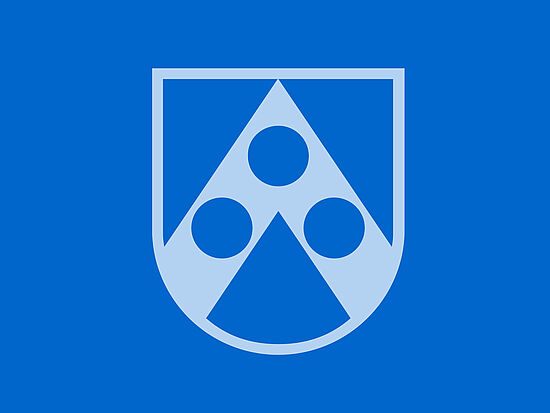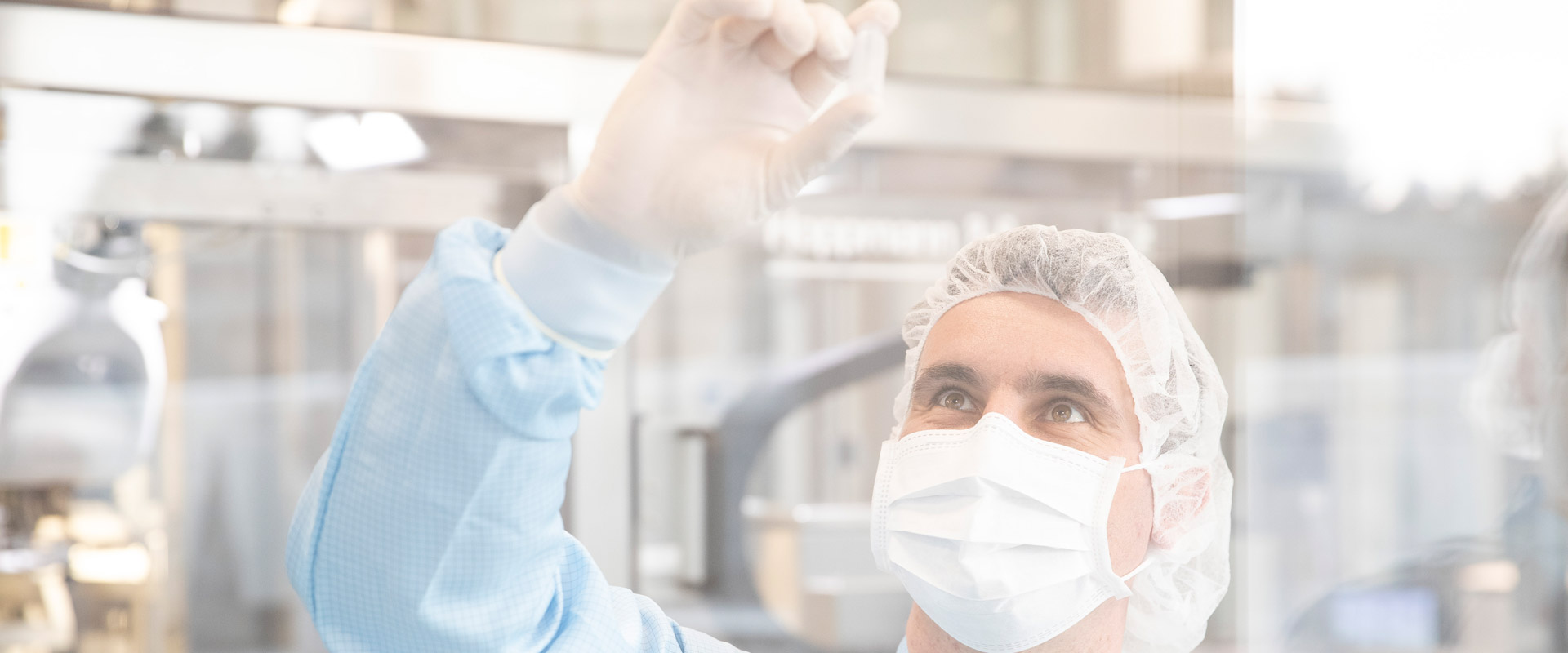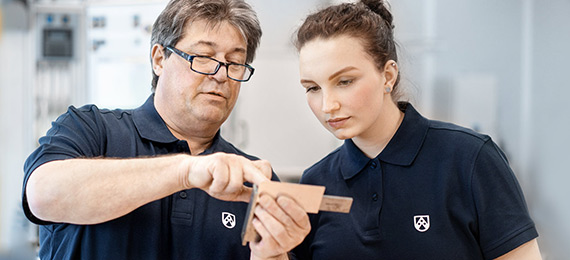- Successful Year in 2008
- 2009 Forecast: Lower Sales and Earnings
- Costs and Capacities Being Adjusted
- Solid Financial Position
Mannheim, Germany, June 10, 2009... The Röchling Group (Mannheim, Germany), one of the world's leading processors of engineering plastics for industry, can look back on a successful fiscal year despite a disappointing fourth quarter caused by the recession. "Irrespective of the severe downturn in demand towards the end of the year, 2008 was a good year for us," mentioned Georg Duffner, President and CEO of the Röchling Group, in explaining the key balance sheet figures. "We again reaped the benefits of our focus on the plastics segment and achieved one of our best results. At the same time, we improved our financial and assets position further." The Röchling Group generated sales which almost reached the previous year's level (EUR 1,067.6 million compared with EUR 1,090.6 million in 2007). The highly positive course of business for Röchling in the first nine months almost compensated for the sharp drop in sales at the end of the year. Georg Duffner: "Only the global economic crisis that emerged in the fourth quarter prevented another record year."
Mr. Duffner described the current fiscal year of 2009 as one of the most difficult stages in the Röchling Group's development. In contrast to many of its competitors, however, Röchling was ideally positioned to withstand the crisis in a stable fashion. "Owing nothing to banks and with a widely diversified portfolio of high-quality, innovative products, as well as state-of-the-art production processes, we are well equipped to overcome all of the challenges that face us." Extensive cost-cutting programs have been implemented in every department since October 2008.
Having incurred high investment expenses in 2007– especially in the High-Performance Plastics division – the Company reduced its investments by 22.4 percent from EUR 68 million to EUR 52.8 million last year. The Röchling Group restricted itself to investments in replacements and rationalization in almost every area. Its biggest individual investments included the putting into operation of new production facilities for thermoplastic materials at the Gastonia plant (North Carolina, USA). In this way, the Company continued with its expansion in North America. In the Automotive Plastics division, the significant financial commitments included mold investments in connection with a large-scale order for the manufacture of interior parts for the new VW Golf VI.
The number of employees in the Röchling Group increased by an insignificant 0.6 percent to 6,194 as of December 31, 2008. The High-Performance Plastics division hired 46 new employees. In the Röchling Automotive division, the trend in employee numbers differed from region to region. In northern Germany, Röchling Automotive needed additional employees for the start of series production of plastic parts for the VW Golf VI; at other sites, however, personnel numbers were reduced.
High-Performance Plastics: Subdued Growth
The High-Performance Plastics division continued along its path of growth, albeit in slightly more subdued form as a result of the recession. It increased its sales by 3.9 percent from EUR 490.7 million to EUR 509.6 million. The disproportionately low – compared with the growth in sales – increase of 3.0 percent in employee numbers to 2,442 is a clear indication of the adjustment in staff initiated in response to the decline in demand in the fourth-quarter.
The most important product innovations in the division include the innovative plastic SUSTARIN H MDT, which is used especially in the food industry. There, components made from plastic are increasingly taking the place of metals due to their more suitable properties. In contrast to other plastic products, SUSTARIN H MDT has the advantage that it is recognized by metal detectors. In this way, food manufacturers that use these components can carry on ensuring the purity of their products by using metal detectors and do not have to adapt their quality assurance systems. The spectacular fields of application for Röchling's products last year included the construction of the world's longest underwater power supply line between Norway and the Netherlands. Röchling supplied, among other things, composite profiles, threaded rods and clamping slings made from Durostone® for power transformation. The crucial factors in the use of this glass fiber reinforced plastic in thyristors are its outstanding insulation properties and its resistance to great mechanical force.
The most important investments included the doubling of production capacity at the machining plant in Mount Pleasant, Pennsylvania and at the plant in Roding, Bavaria, Germany. The commencement of operations at the machining plant in Mumbai, India, the opening of a new production site in Kunshan, China and the foundation of the first subsidiary of Röchling Engineering Plastics in Russia are indicative of the Group's stronger international presence.
Automotive Plastics Continues Placing Faith in Innovation
Although the sharp economic downturn at the end of 2008 had affected automobile parts suppliers particularly badly, the decline in sales in the Automotive Plastics division turned out to be rather moderate. Sales were supported by high mold earnings and declined by only 3.3 percent to EUR 553.0 million (2007: EUR 572.0 million). In the comparative fiscal year 2007, the Annual Financial Statements still included the Röchling cold-rolling plant, which has now been sold, and the shares in the Chinese joint venture CSAPT, which has likewise been sold, on a pro rata basis.
Included in the balance sheet for the first time in 2008 were the sales generated by two new acquisitions designed to strengthen the Röchling Technical Parts group (RTP). The Oertl Kunststofftechnik group (Brensbach, Germany) manufactures highly complex plastic parts for customers from the medical technology and pharmaceuticals sectors. CircleSmartCard (CSC), based in Erfurt, Germany, is one of the world's leading smart card manufacturers. These were joined in December by Haas Smartcard S.A. (Tlaxcala, Mexico). This company, too, specializes in the production of smart cards.
Due to the recession, each Group division had to reduce earnings. The start of production for the new VW Golf model, on the other hand, led to exceptionally high mold sales.
Cooperation with existing customers was intensified and new customers were acquired. The development and supply of air filter systems for Porsche and electrically-driven controllable air duct systems for Peugeot in France were important orders. In the future, Nissan and Volvo Trucks will carry expansion tanks manufactured by the Röchling Group. Cylinder head covers were produced for Iveco for the first time.
The development of an underbody that holds the current lightweight construction record was another important innovation by Röchling Automotive. It represents a significant contribution to the reduction of fuel consumption and CO2 emissions.
The high quality standards that prevail in Röchling's production are documented by the presentation of Ford's Q1 Award to the Röchling Group. The aspects assessed for this award included customer satisfaction, quality and continuous product improvement.
One of the focal points as far as investments were concerned was the putting into operation of a production hall at Röchling SGT Spritzgießtechnik.
Outlook: No Quick Economic Recovery in Sight
For the current fiscal year, Röchling is expecting a sharp decline in its sales and earnings. Röchling is reacting to this by adjusting its costs and capacities rigorously. Georg Duffner: "Equally important to us as responses to the crisis, however, are the intensification of our sales activities and the further development of innovations. We are determined to maintain and enhance our position on the market."






